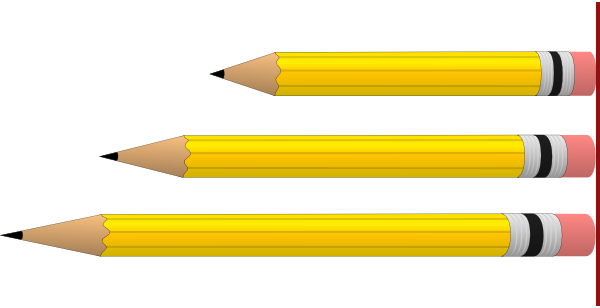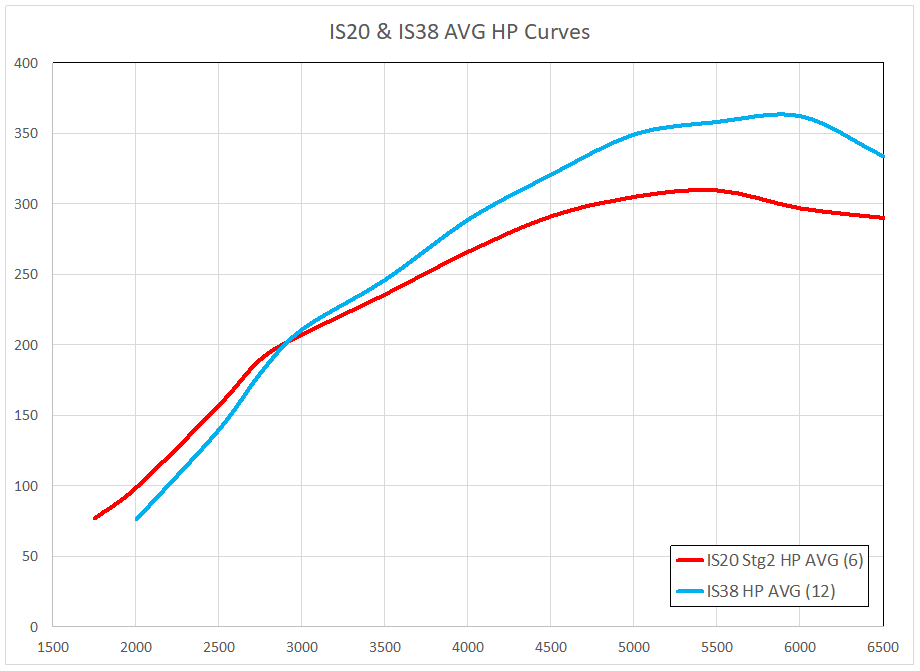1.0 Background:
1.1 Summary
If you’ve ever read a Mk7 discussion board or Facebook group you have undoubtedly come across this question “what’s the best tune to get?”. In fact, if you frequent discussions online you probably have noticed that this question is asked regularly, like almost every day.
There are no shortages of recommendations that are both enthusiastic and confident, and universally lack objective information that compares the tuning options.

I set out to measure off-the-shelf (OTS) tune options by recording data during a dyno “shoot-out”.
In the interest of generating comprehensive information, every tuner I could find that sells an OTS IS38 tune for the Mk7 GTI was contacted. The vendors who are willing to have their products evaluated are identified in the table in the “Products under test” section.
Note: The OTS IS38 tune was selected for this comparison because an IS38+ turbo is currently installed on my GTI.
Two tuning methods are available for the Mk7 GTI with IS38 turbocharger. “Custom” tuning and “off-the-shelf” (OTS), ready-to-use, software. Off-the-shelf presents a simpler, lower-cost option, with performance that should be close to that of a custom tune.
1.2 Previous test results
There is no prior test of the OTS IS38 software for Mk7 GTI of the scope of this effort that I am aware of.
2.0 Purpose of test:
The purpose of this “shoot-out” is to measure engine performance and operating variables data produced by each OTS tune when flashed to the same IS38-equipped GTI.

The resulting measurements should facilitate a comparison of the software products.
Outputs will include horsepower (HP) and torque (TQ) curves, peak HP & TQ values, and a calculation of the Horsepower area under the curve.
Some key operating variables are air-to-fuel ratio, boost pressure, ignition timing, knock sensor voltage, and ignition timing retard.
3.0 Products under test:
3.1 ECU Tune
“Tuned” ECU software alters how the GTI engine computer manages the engine operation, typically with the goal to increase the power output.
The IHI IS38 turbocharger found on the Golf R is a straightforward upgrade for the Mk7 GTI and the installtion of this larger turbocharger on the GTI necessitates a change to the GTI ECU software.
Off-the-shelf (OTS) software has been developed by the tuning companies to control the GTI engine with IS38 turbocharger. With an OTS software product the development and testing of the software precede the sale of the product to the consumer. A custom tune on the other hand is developed after being sold to the consumer, and requires a number of revisions that are developed based upon data provided by the vehicle owner. An OTS tune is ready to go right away and allows the vehicle owner to avoid data logging and revisions before having a finished product.
Several companies that sell this OTS IS38 software product to consumers were contacted to take part in this data collection effort.
The table below summarizes the companies that were contacted and their response:
| Vendor | Participation Status | Cost | HP/TQ |
|---|---|---|---|
| Unitronic | 14 day money back | $1,000 (Dealer install) / $1,165 (Uniconnect) | 381/377-C |
| EQT | Not contacted | $1,075 ($350 + $725 Cobb AP) | 357/395-W |
| Integrated Engineering | Not contacted | $1,000 ($850 + $150 Powerlink) | 360/403-W |
| Eurodyne | Product available | $700 (w/ flash device) | 410/400-C |
| SneekyTuned | Not contacted | $1,075 ($350 + $725 Cobb AP) | |
| GIAC | 30 day money back | $1,200 ($1000 + $200 Flashloader) | 350/356-W |
| APR | 30 day money back | $750 (Dealer install) | 358/363-W |
| REVO | 30 day money back | ? | 360/383-H |
| MTM | $1,750 (Dealer install) |
3.2 Mk7 GTI
The Mk7 GTI can be easily modified by replacing the stock IHI IS20 turbocharger with the IHI IS38 turbocharger that is factory equipment for the Mk7 Golf R. The IS38 turbocharger enables the engine power output to be increased across most of the engine operating range.

The GTI being used in this shoot-out has the following aftermarket equipment installed:
- Eventuri intake
- MST intake hose
- MST turbo inlet elbow
- Shuenk IS38+ turbocharger
- 034 Motorsport turbo muffler delete
- Revo charge pipes
- IE v1 intercooler
- Majesty bicooler intercooler
- HPA high-pressure fuel pump
- APR catch can
- Trackslag catted downpipe
- Baun performance resonated midpipe
- AWE Tuning track edition exhaust with Magnaflow muffler
- Built engine
The Shuenk IS38+ turbocharger is an aftermarket version of the IHI IS38 that is the same size as the IHI turbocharger but uses different bearings and shaft that are intended to improve durability. The Shuenk turbo is intended to operate with IHI IS38 software.
3.3 Test instrumentation
The GTI will be operated on a DynoJet chassis dynamometer to record wheel horsepower and torque.
Engine variable data will be logged using the HP Tuners VCM Scanner.
Intake air conditions will be measured using a DATAQ DI-2108 datalogger.
4.0 Scope of test:
4.1 Test environment
Testing will take place at <Shop> in Orlando Florida.
Temperature conditions in the shop as reported by the GTI ambient air temperature sensor (Handheld FLIR) will be recorded at the start of each series of pulls.
4.2 Test and test conditions
The test of all software products will take place on the same day. After each tune’s results have been recorded another tune will be flashed to the ECU until all of the available tunes have been tested.
Data will be collected by accelerating the GTI on the dynamometer at full throttle starting at 1800-2000 RPM and concluding at 6500 RPM.
The transmission will be placed into the fourth (4th) gear for data generation.
| Test point / tune | Ambient Air Temperature | IC_Outlet Temperature | Coolant Temperature | Oil Temperature | DSG Oil Temperature |
|---|---|---|---|---|---|
| 1 / APR | |||||
| 2 / APR | |||||
| 3 / Eurodyne | |||||
| 4 / Eurodyne | |||||
| 5 / Unitronic | |||||
| 6 / Unitronic | |||||
| 7 / GIAC | |||||
| 8 / GIAC | |||||
| 9 / IE | |||||
| 10 / IE | |||||
| 11 / SneekyTuned | |||||
| 12 / SneekyTuned | |||||
| 13 / EQT | |||||
| 14 / EQT | |||||
| 15 / Stratified | |||||
| 16 Stratified |
4.3 Test criteria
4.3.1 Assessment standards
Success / Failure criteria – Defining success or failure is difficult
Failure – Fault code generation caused by an abnormal operating condition.
4.3.2 Completion standards
Testing will end when
4.4 Limitations to scope
5.0 Method of test:
5.1 Test methods and procedures
5.2 Support requirements
Vendors of the software products will need to make available a copy of their software and any hardware needed for installing the software onto the GTI.
6.0 Project management:
6.1 Supplies
6.2 Reports
6.2.1 Product test results
6.2.2 Test result summary
7.0 References:
The goal of this test is to collect data that will support post-test analysis.
The only requirements that are defined for the products are:
- Function with an IS38 turbocharger equipped Mk7 GTI
- Allow the vehicle to operate safely to record data
The GTI will be operated on a Dynojet dynamometer in the fourth gear (DQ250 DSG transmission).
Data will be recorded using a Cobb Accessport, a DATAQ Instruments DI-2108, and the Dynojet system.
Method of test:
The GTI will be accelerated at full throttle from an engine speed near 2,000 RPM until the engine speed reaches approximately 6,500 RPM.
This procedure will be repeated to check for consistency of the produced data. In the event there is a significant deviation (defined below) in the recorded data a third pull will be recorded.
Risk management:
The following conditions will be met before a pull is made:
- Intercooler outlet air temperature <= 85 degF
- Turbocharger outlet air temperature <= 125 degF
- Engine oil temperature <= 225 degF
- Engine coolant temperature <= 205 degF
- DSG oil temperature <= 225 degF
Ambient conditions in the automotive shop will be monitored:
A significant deviation of recorded data is defined as:
- Boost pressure (target or actual) change >= 1 psi
- Ignition timing angle change after boost pressure peaks >= 1 degree
- Air-to-fuel ratio change >= 0.5
